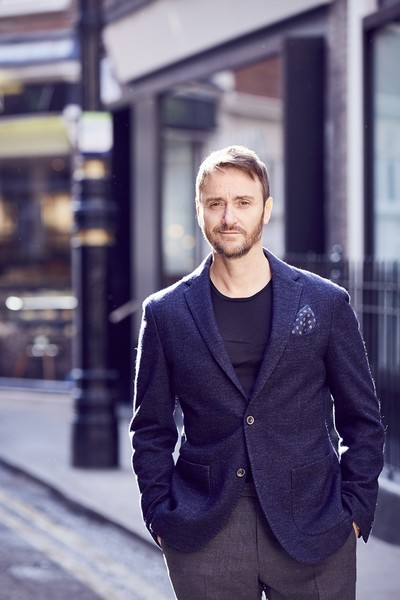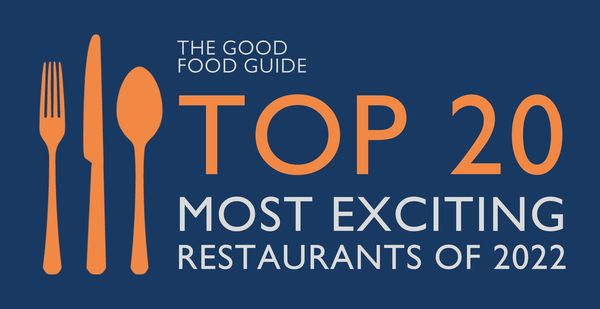“You know, I never dreamed it would turn out like this,” says Jason Atherton. “When I left home as a teenage, all I ever dreamed about was food and learning to cook. I thought if I can learn to cook well, I’m sure I can open a restaurant back up north, and do all right for myself.”
It didn’t quite work out that way. Of this nation’s many successful chefs and restaurateurs – with their gritty tales of sweaty struggle and hard graft to reach the top – few are as inspiring as Jason. His life has progressed from a tough childhood, during which he lived mostly in a caravan and did not see his father and brother for more than a decade, to remarkable achievements in the world of gastronomy.
Along the way, Jason toiled for names including Nico Ladenis, Marco Pierre White and, until their bust-up, Gordon Ramsay.
“I saw Gordon at the GQ Men of the Year Awards,” he says. “We just looked at each other and that was it. If he came here tomorrow I’d cook for him. All the grudges are [held] by him, not by me. We had an argument over money but I have so much respect for him and no resentment.”
Then Jason went it alone, and look what happened. We meet in Pollen Street Social, his large, flagship restaurant in Mayfair, London. Seven years ago, almost to the day, we sat in the same restaurant, shortly after it had opened, and Jason told me he was content with just the one place. Since then, he has opened a string of restaurants around the world. This month, he will launch his 20th, in Shanghai.
“We’ve got another big project opening up in London in November. I can’t say too much about it but it’s going to be huge. We’ve got seven new restaurants opening over the next four years, including maybe Qatar, Amsterdam, Venice and Los Angeles. So we’ll spread our international wings a little bit more.” Anything else? “Yes, at some point we’ll do a hotel in London.” Plus, come autumn, there’s the publication of The Pollen Street Cookbook.
The 46-year-old credits his accomplishments to “a fear of failure, a fear of going back to a certain point”. Which point? “When I came to London, I lived in a three-bedroom at with 13 other chefs. I had a tiny corner of one room for two years. I couldn’t afford to live anywhere else. That’s something I wouldn’t want to relive.”
And when he went to work for Ferran Adrià in Spain, “I was up to my neck in credit card debt but did I get out of it what I needed? Did I work for one of the best chefs who has ever walked the planet, and did I learn shedloads? Yes.” In short, he doesn’t ever want to be poor again. It seems unlikely he will be.
In person, Jason is friendly and warm, savvy and focused. He immerses himself in his business and steadfastly avoids the lure of television appearances. Even, he reveals, when the invitations are from the grande dame of TV cookery. “I just got approached to see if I would audition as a judge for Mary Berry’s new TV show. I’m not interested. Why? To test people’s soggy bottoms?
“I need to be in here, where I belong, making my customers happy. One year I worked out I was out of my kitchen for nearly half the year doing telly. I got seduced by it a bit. And for what? Dancing around like an idiot? I’ve said to my PA: ‘Reject every single offer from telly; I don’t care what it is.’”
“The thing is,” says Jason, “I love to cook. A lot of chefs who get to my position taste a bit of success and can’t wait to get out of the kitchen. And that’s a big, fat mistake. Never forget the kitchen, the restaurant, the customers. I don’t want to be famous... I don’t want people sending me underwear in the mail.”
Has that happened? “No, no.”
Last summer he and his wife Irha, and their two children, Keziah, 12, and Jemimah, six, moved into a lavish new home beside Wandsworth Common in south-west London – about half a mile from Gordon Ramsay’s house, in fact.
“We have five family holidays a year – no expense spared. When my kids are older and they’re asked about their childhood, they can say: ‘It was amazing because one Christmas we were skiing in Whistler, the next we were skiing in Japan. Daddy was a chef so we only ate at top restaurants. Mummy was a fashionista so she always dressed us very nicely.’ And I want to be able to say: ‘We did it! How cool was that! We had the most incredible life, all from me learning how to cook.’”

Photo by Alun Callender
Perhaps he says this because his own childhood had its share of troubled relationships and parental disputes. He was three years old, living in Worksop, Nottinghamshire, when his parents separated.
“My sister and I were told to go and pack our bags because we were going on holiday. And that was that. My whole world was ripped apart. We moved with Mum to [a caravan park in] Skegness. We never went back. Then Mum and Dad fought each other for custody.” His brother Dean stayed with his father.
“I was happy. Every week we were allowed a comic and I’d get the Beano. One of my joys was that the caravan site owner had a dog, and at weekends I’d take it for a walk; it was simple things like that. Mum eventually remarried, to a man called David, who’s been an amazing stepfather to me. He had a car and we could watch telly in the caravan by plugging it into the battery.”
At the age of 15, he says, “I wanted to see my brother and my dad. I looked Dad’s business up in Yellow Pages. I phoned and said, ‘Can I talk to Vic Atherton?’ And they put me through. My dad sent my brother to pick me up. I said to my mum, ‘I’m going to spend the day with Dad and Dean.’ She was a bit shocked.”
The way Jason sees life, “it’s like playing a game of poker. God deals you a hand and it’s up to you how you play it. If you go out, taking drugs all night, or being lazy, you’re going to amount to nothing. That’s just the way it is. Restaurants are tough and if you think you’re going to learn your trade in three years and be a star chef, you’re not going to succeed. The best thing that ever happened to me was taking 23 years to get my first restaurant.”
He looks after his staff extremely well. Once a year, for instance, he takes the head chefs of his London restaurants on an enviable jolly. “They can choose a three-star Michelin restaurant anywhere in the world, and I take them there, all expenses paid.
“It’s good for bonding. I remember in Gordon’s group all the chefs hated each other. If a chef in one restaurant needed some scallops, for example, the other chefs in the group’s restaurants wouldn’t even share theirs. It was a nightmare. I’m a very positive person and I want my team to get on well.”
Not that it’s all plain sailing. “I do have sleepless nights; we’ve had failures. But this business is built on respect. The minute staff don’t respect you, it’s over. The business will melt through your hands.”
He finishes his tea and heads back to the kitchen to cook, adding: “It’s not just the fear of failure that keeps me going. There’s so much more to be achieved, I reckon. That and simply the joy of cooking for people.”
Interview by James Steen, originally published in Waitrose Food, May 2018




